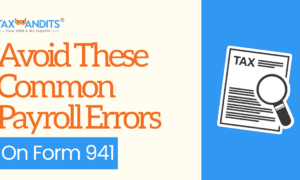Building your own success as a self-employed individual comes with immense freedom and flexibility. But when it comes to retirement planning, questions about Social Security can arise. This guide will equip you with the knowledge you need to navigate Social Security for the Self-Employed, ensuring a secure and fulfilling future.
Understanding Self-Employment Tax (SE Tax)
As a self-employed person, you’re responsible for paying both the employee and employer portions of SSS Online Registration and Medicare taxes. This combined rate is 15.3%, consisting of 12.4% for Social Security and 2.9% for Medicare. While it may seem like a higher tax burden compared to traditional employment, remember, you’re also contributing towards your future retirement benefits.
Planning for a Secure Retirement as a Solopreneur
The beauty of self-employment lies in being your own boss. But when it comes to retirement, the responsibility for planning falls solely on you. The good news? There are a variety of options available to build a nest egg and enjoy a comfortable retirement.
Exploring Your Retirement Options
- Individual Retirement Accounts (IRAs): These accounts offer tax advantages for retirement savings. Traditional IRAs allow for pre-tax contributions, reducing your taxable income for the year. Roth IRAs offer tax-free withdrawals in retirement if you meet specific eligibility requirements.
- Solo 401(k) Plans: If you’re self-employed with no full-time employees, a Solo 401(k) plan allows for significantly higher contribution limits compared to IRAs.
- Health Savings Accounts (HSAs): If you have a high-deductible health plan, consider an HSA. You can contribute pre-tax dollars to cover qualified medical expenses, and any unused funds roll over year after year, growing tax-free.
Maximizing Your Social Security Benefits
While you contribute a higher tax rate as a self-employed individual, there are strategies to maximize your future Social Security benefits:
- Track Your Earnings Accurately: Social Security benefits are based on your reported self-employment income. Keeping meticulous records ensures you get the most out of your contributions.
- Minimize Business Deductions: While business deductions lower your current tax burden, they also reduce your reported income for Social Security purposes. Strategically plan your deductions to find a balance between tax savings now and higher benefits later.
- Work for at Least 40 Credits: To qualify for Social Security retirement benefits, you need to earn at least 40 credits (typically earned through 10 years of work).
Frequently Asked Questions (FAQs) on Social Security for the Self-Employed
How much does Social Security tax cost for the self-employed?
The self-employment tax rate is 15.3%, consisting of 12.4% for Social Security and 2.9% for Medicare.
Can I contribute more to Social Security as a self-employed person?
No, there is no option for additional voluntary contributions to Social Security beyond your self-employment tax payments.
When can I retire and start receiving Social Security benefits?
The earliest you can start receiving Social Security retirement benefits is at age 62, but you will receive a reduced benefit amount. You can receive the full benefit amount by waiting until your full retirement age (FRA), which is typically between 66 and 67.
Do I qualify for Social Security disability benefits if I’m self-employed?
Yes, self-employed individuals can qualify for Social Security disability benefits or calamity loan if they meet the eligibility requirements, including having a sufficient number of work credits and a medical condition that prevents them from working.
What if I have a side hustle in addition to my regular job?
If your net earnings from self-employment are $400 or more in a year, you will need to pay self-employment tax on those earnings. However, the SSS Online Portal tax only applies to the first $168,600 (in 2024) of combined wages and self-employment income.
Are there any tax breaks for retirement savings as a self-employed person?
Yes, contributions to IRAs and Solo 401(k) plans can be tax-deductible, reducing your current tax burden.
How can I estimate my future Social Security benefits?
The Social Security Administration (SSA) offers a retirement benefits calculator on their website to help you estimate your potential benefits.



































